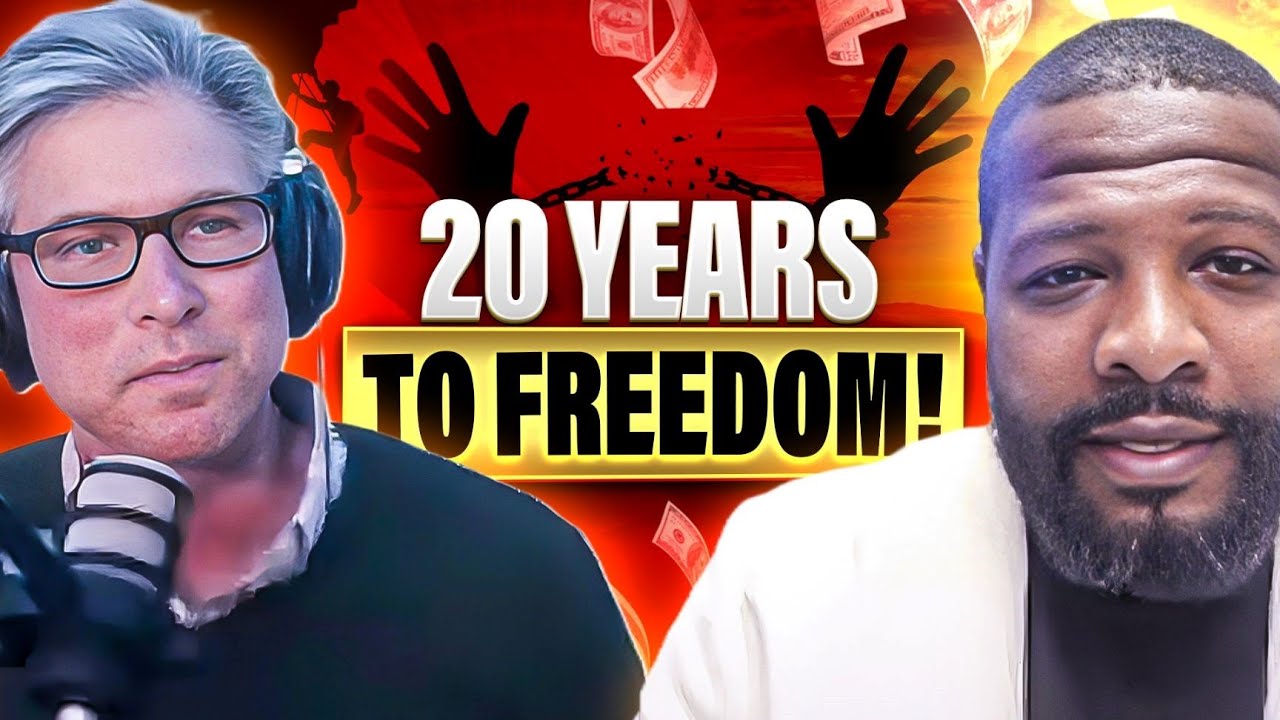The moment Marvin Cotton Jr. was arrested, he was picking up his daughter from daycare, blissfully unaware of the storm that was about to engulf his life. He recalls standing there, a father just trying to do right by his child, when suddenly, he was surrounded by police, guns drawn, and handcuffed without any explanation. This shocking twist of fate would lead him down a road that nobody should have to travel, yet that moment marked the beginning of a profound journey, one filled with struggle, loss, and ultimately, a new sense of purpose. Growing up in Detroit, Marvin had a childhood shaped by a single mother who did her best against the odds.
His father, a drug addict and alcoholic, was a ghost in his life, leaving behind a string of broken promises. Marvin grew up in a tough neighborhood, blissfully unaware of the poverty that surrounded him until high school. He had a brother who was a great athlete with dreams of making it to the NFL, but a tragic car accident changed everything, leaving that potential unfulfilled. While sports were a part of his brother’s world, Marvin found his own voice in communication, always more focused on social interactions than athletic pursuits.
But it was during this time that everything unraveled. The arrest came as a shock, and the subsequent interrogation was a nightmare. Marvin remembers the 13 hour ordeal where he was denied basic human needs, like bathroom access. The police treated him with a level of hostility that felt surreal, especially considering he had just been a father picking up his child.
He was accused of murder, a wrongful conviction that would lead him to spend 20 years in prison under harsh conditions. The irony of being labeled a criminal while he was simply trying to be a good dad was not lost on him. As Marvin navigated the complexities of prison life, he faced not just the challenges of wrongful conviction but also the emotional toll of losing friends, one of whom was brutally murdered. This loss led to further accusations against him, compounding the injustice he faced.
The weight of being wrongfully imprisoned was heavy, but it also became a crucible for his character. He learned to stay grounded, to find purpose even in the darkest of places. The day he was exonerated marked a pivotal moment in Marvin’s life. After 19 long months of freedom, he emerged with a renewed sense of mission.
He began engaging in positive community work, sharing his story not just as a tale of survival but as a way to connect with others who have faced similar injustices. Marvin realized that his experiences could empower others, and he leaned into that role with enthusiasm. In our conversation, Marvin emphasized the importance of remembering the exact spot where he was arrested, a powerful symbol of his journey from victim to advocate. He spoke about the confusion and fear that enveloped him during those first moments of arrest, but he also illuminated how those experiences shaped his desire to make a difference.
As he works within his community, he hopes to inspire others to rise above their circumstances, to find their voices in a world that often seeks to silence them. Today, Marvin is not just a survivor of a flawed system; he is an active participant in the fight for justice. His story serves as a poignant reminder that our past does not have to define our future. His journey is not merely about what he endured but about how he has chosen to use that experience to advocate for change.
As we wrapped up our conversation, it became clear that Marvin’s journey is about more than just one man’s ordeal; it is a call to all of us to reflect on the systems in place and how they can fail individuals. His work in the community represents a vital step toward healing, not just for himself but for everyone who has been touched by the criminal justice system. In a world filled with challenges, Marvin Cotton Jr. stands as a testament to the power of resilience, not just for himself, but for the community he now serves.

